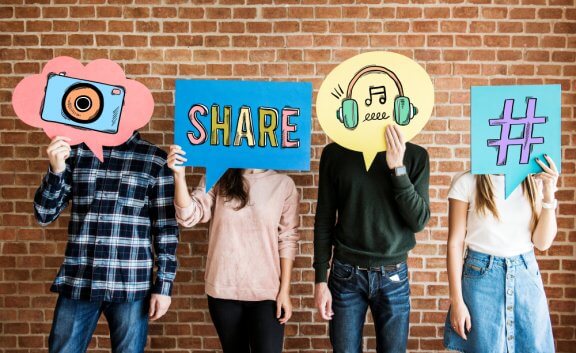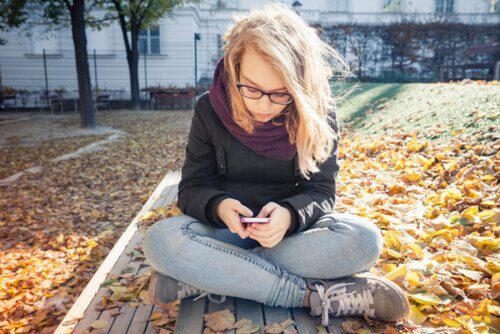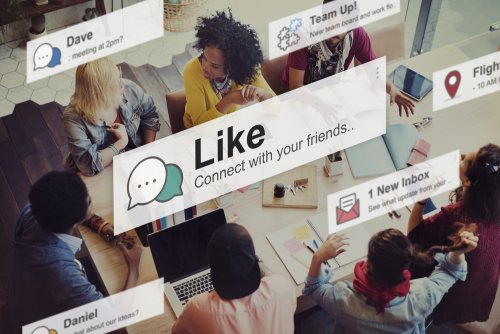Should I Check My Children's Social Media?

It’s normal for parents to want to check their children’s social media and make sure they’re using it safely and wisely.
Social media plays a major role in our children’s lives and it’s especially important to teens. However, the fact that their use of social media takes place in the digital realm doesn’t make them exempt from danger.
Your children will allow you to participate in their experience with social media as long as they feel you aren’t trying to control them.
Just as with letters, notes, diaries, and text messages, social media gives people the opportunity to express themselves. Your children will see it as a place of privacy. Therefore, communication will be a key part in determining how children perceive parental controls regarding social media.
In what way should you control your children’s social media?
This will vary depending on the knowledge you have of social media. Likewise, it will depend on whether or not your child allows you to participate in his or her experience and related doubts.
If your children feel that you respect their privacy on social media, they’ll be more likely to maintain open communication about what they’re doing online. With this sort of teamwork, you’ll be able to maintain a certain control over the following aspects:
Users
In the initial stages of social media use, people tend to talk to and share with friends and acquaintances. However, this circle tends to grow larger and larger, including friends and family, other users with lots of followings, and even complete strangers.
Furthermore, some teens commit the mistake of trying to compete for the largest number of contacts. However, your children need to understand that they should practice the same precautions online as they would in real life.
They wouldn’t allow a random stranger who waves to them on the street into their lives, so they shouldn’t accept friendship requests from complete strangers who want to enter their social media circle.

Content
Personal information, videos, interests and locations are just part of the content that spreads on social media. A simple click on “like” can set off an explosive reaction that has far greater repercussions than children often expect.
Remind your children that if one of their followers shares their contact, that person’s contacts will be able to see it, and so on. Therefore, your children should limit their privacy settings to restrict the diffusion of their content to their own friends and followers.
Attitudes
Teens use social media to relax and have fun talking with their friends. However, just like in a face-to-face conversation, they may find themselves talking with wonderful people, as well as very toxic individuals. Your children need to know how to react.
A good solution is for you to teach your children to recognize toxic or offensive situations and harassment online. If they’re experiencing it, encourage them to let you know, and report it, if necessary.
Use
Remember, social media is a tool that your children use to express themselves. There are aspects that you can and should control, such as respect and the time they spend on social media. Also, you should make sure that social media remains a simple complement to their real-life social interactions.
To keep your children from becoming too dependent on social media, you should encourage them to have other interests. For example, getting involved in sports, artistic or recreational activities can help prevent isolation and idleness.
The risks related to social media
The article From ICT to ICRT affirms that there is a gap between adults and adolescents in regards to their use of information and communication technology, such as social media. This is the first risk we need to keep in mind.
In general, younger generations have a better command over technology, so the problem lies in how we can control something we don’t fully understand. We can only make up for our lack of knowledge with clear and precise information that brings both parties together .
In this day and age it’s easy to find classes and workshops for parents and teens to help them learn to use social media. These courses also raise awareness about the risks involved in social media, such as addiction and cyber-bullying.

Responsible use of social media
Educating your children on the responsible use of social media, informing them about the risks, and conversing openly about the online world in which they move will help their social media experience be a positive one.
All cited sources were thoroughly reviewed by our team to ensure their quality, reliability, currency, and validity. The bibliography of this article was considered reliable and of academic or scientific accuracy.
- Garrido-Lora, M., Busquet Duran, J., & Munté Ramos, R.-À. (2016). De las TIC a las TRIC. Estudio sobre el uso de las TIC y la brecha digital entre adultos y adolescentes en España. Anàlisi: Quaderns de Comunicació i Cultura, (54), 44–57. http://doi.org/10.7238/a.v0i54.2953
- Martínez-Ferrer, B., & Moreno Ruiz, D. (2017). Dependencia De Las Redes Sociales Virtuales Y Violencia Escolar En Adolescentes. International Journal of Developmental and Educational Psychology. Revista INFAD de Psicología., 2(1), 105. https://www.analisi.cat/index.php/analisi/article/view/n54-garrido-busquet-munte